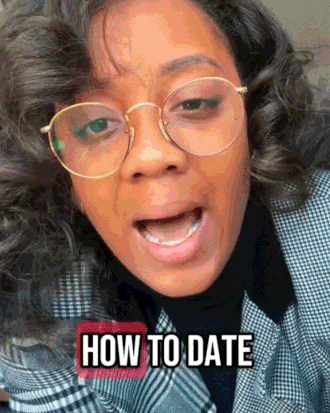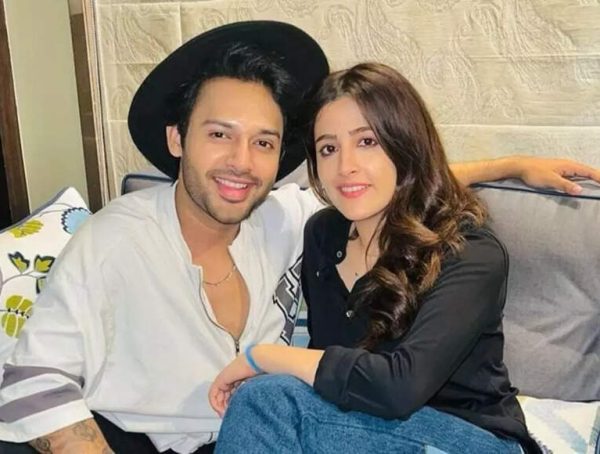
For many people, dating is hell. If you could put a price tag on not having to deal with it anymore — namely, by finding a long-term partner with far less agony — what would that number be?
Hiring a dating coach is one way to find out. In 2023, Shirley Williams, a then-37-year-old living in New York, had invested tens of thousands of dollars on her education, her career, and therapy. But when she posted on TikTok about paying a dating coach $10,000 to “find a man”? People found that crazy.
Williams explains that she hadn’t had a date in two years before working with a dating coach. After that, she says, she’s getting ready to sign marriage papers.
Her post went viral. “10k for a man that can leave still? Education is forever, a body looks great, a vacation makes memories. I don’t want a man that bad,” one commenter wrote.
Plenty of people do, though. A 2022 New York Times story called it a “good time to be a dating coach,” and TikTok, which is overrun with would-be romantic experts advertising their services, has only contributed to the boom. Coaches charge anywhere from $30 for a one-off group Zoom meeting to tens of thousands of dollars for multi-month packages featuring overhauls of clients’ wardrobes and social-media profiles. Some price their services like therapy sessions, with one-one-one calls for around $100 per conversation. Unlike therapists, dating coaches don’t have to undergo training or receive certifications to fix your life (though plenty have degrees of some kind). Largely, coaches bank on generalized self-care practices and often old-school attitudes toward gender roles, plus their own charisma and experience.
During Williams’s 20-minute intro call with her coach, Anwar White, she was drawn in by his “gentle and soft” demeanor, even as he challenged her. “He helped me understand that a lot of my pitfalls came from not having a strategy. I was like, I’m getting this in 20 minutes? I need the whole kit and caboodle.”
Williams signed up for White’s $7,000, 12-month “Get Your Guy VIP” program. That “investment,” as she calls it, got her weekly one-on-one meetings, group calls with other clients, 24/7 texting access to White, and online coursework that promised to make her the CEO of her love life, too. “We created a strategy for meeting men online: how many matches to aim for, how to write my profile, how to move the convo forward,” she says. “And one for meeting men in person: where to go, how to make myself approachable, how to lead with softness. Dating became less emotional chaos and more intentional action.”
Williams highlights what White calls a “funneling system,” which helps women progress relationships from app to text to phone call and beyond. “Before, I’d either get too excited too soon or feel discouraged too fast,” she says. “This funnel kept me grounded, focused, and able to assess a man’s consistency rather than his chemistry. It protected my heart and helped me filter fast, without burnout or heartbreak.” By March, she was in an exclusive relationship.
Williams moved on to White’s “Get Your Ring” program. “Anytime one of my clients gets into a relationship, they’re automatically enrolled in the Get Your Ring program, and that’s where we teach more relationship skills, because dating skills and relationship skills are actually quite different,” says White. About 30 percent of his clients continue on in the program after a year, by his estimate.
Williams got married earlier this month. After talking about her coaching publicly, photos and identifying information of Williams’s now-husband were leaked. To avoid further scrutiny (say, whether some anonymous commenter considers him money well spent), she declined to answer most questions about him. “What I can share is that he is kind, consistent, emotionally intelligent, and funny,” she says. “I never have to chase clarity or beg for anything.” Williams says that when they met, he had been in therapy for five years. She told her partner about her work with White by the third or fourth date: “He does not know Anwar personally, but he loves Anwar, because he knows Anwar is a massive advocate for him.”
White says the women he works with struggle to feel loved and cared for, and he tries to help them engage with men on more assertive terms. Women are now surpassing men in several major cities in arenas like education level and income. The disparity is even more dramatic for Black women, as White mentioned when I spoke to him — two-thirds of Black bachelor’s-degree holders and three-fourths of Black graduate-degree holders are women, and single Black women make slightly more money than single Black men, according to the Pew Research Center.
Many people are receptive to White’s messaging about how to handle these disparities. In a video posted in April, creator @joious9 recalls having an initial consultation call with White before deciding that she didn’t take dating seriously enough to want to invest in it. Still, she continued to enjoy his free content on social media and through podcasts, and ended up meeting her fiancé soon after. “His marketing is brilliant. He is a dating coach for high-earning Black and brown women. Period. If that’s you, you’re going to call him,” she says in her post.
White’s customers aren’t only women who have put in the work in every arena of their lives, but women who are willing to put in even more work to improve their dating life. Theoretically, all of this work could serve to make one’s dating life easier. It still requires a lot of effort.
White says he guides women to make sure they’re “only going out with relationship-ready men.” How exactly does one accomplish this, though? In one recent TikTok, he explains how a person’s childhood family dynamics — particularly if their father is “absent” and their mother is “too involved” or “hypocritical and judgmental” — can shape their adult dating life. This leads him to recommend largely accepted grounding and self-development strategies, like that women pursue hobbies that aren’t attached to a measurable goal, use language such as “I would prefer if” or “I’d be more comfortable if” to set boundaries, and practice writing down how they are enough just as they are. It’s all a bit Therapy 101, but, in fairness, perhaps not everyone is accustomed to viewing romance through that lens.
White’s perspective sometimes ventures into complicated gender dynamics, made even more complicated by race. “A lot of the program is learning how to be more in a feminine energy,” White says. From his point of view, many of his Black and brown clients “had to be very serious all of their lives and work twice as hard for half of what everybody else gets.” He says this means embracing a playful and flirtatious tone with men can be difficult. Part of his job, as he sees it, is to teach clients how to feel safe enough to banter. For some, this might sound like a guy telling a woman she needs to smile more. But from White’s mouth, some find this rhetoric invaluable.
The high-dollar dating industry extends to all different demographics, as long as you can pay. Sandra Hatton, co-founder and CEO of the dating app and matchmaking service When We First, has spent the last 15 years as a matchmaker and conducted over 10,000 interviews with singles. Matchmakers work differently than coaches in that they pair clients with other singles directly, rather than telling them how to be attractive to others. Many source from their existing clientele or scout eligible candidates at galas or through community organizations. Some just help people sort through the profiles of potential matches who are already on the apps.
The pandemic, Hatton says, increased the demand for work like hers. “I used to have to push people outside of their comfort zone on certain things, like age or ethnicity,” says Hatton. Now, she says, people are looking for the same “core values” rather than someone who checks certain boxes. Like White, Hatton points out how “feminine energy” figures into chemistry. “Men are leaning a little bit more into their masculine, women are leaning a little more in their feminine, and that’s what’s becoming the new norm,” she says. It’s another set of rules that make something orderly out of identities and experiences that are much more complex.
The women I spoke to were able to find value in hiring personalized romantic services by framing it, as with so many other aspects of their lives, as self-development rather than the simpler transaction of “spend this amount of money for a husband.” Shara Seigel, a public-relations VP in New York, hired dating coach Kevin Nahai in her late 30s after hearing him on the podcast We Met at Acme. She doesn’t recall exactly how much she paid him but says it was priced “like therapy.” She says Nahai taught her to confidently and politely ask about, for instance, whether a man wanted children. “He had me get crisp on what I’m truly looking for,” she says. “He had me trying to see outside of the typical filters that a lot of us put on — things like height.” She began working with a matchmaker at the same time, but regrets it. “I did not find the matchmaker to be helpful, to be honest,” she says. “The matches I found for myself on apps and at events were better fits than the guys a stranger selected for me. A lot were not well vetted.”
Kange Kaneene, 42, lives in New York and works in venture capital. She recently spent around $10,000 on a matchmaking service, which included five hours of coaching, a dating-app-profile overhaul replete with a photo shoot, and three months of matchmaking. The matchmaking element of the package was a bust — the Atlanta-based company claimed to have clients in New York, but paired her with a guy in New Jersey — but the internally focused parts of the service she loved.
Kaneene recalls an experience before coaching, when a guy she met on Bumble suggested they meet for drinks at a specific location without asking what neighborhood she was in. “I thought, Not a deal-breaker, but he’s not necessarily considerate,” she says. The date went well enough, and he asked to see her the next day. When she texted him to confirm, he said, “Confirmed, but only if you can confirm that I’ll see you naked after.” That grossed her out, and the second date never happened. She notes that if she’d had coaching by then, the bar-location red flag would have stopped her from meeting him in the first place. “I don’t know if it was worth $10,000, but I’m a better dater each time I date someone by incorporating their coaching,” she says.
Kaneene learned a method of asking men she meets at events how to “stay in touch” within a few minutes of saying hello, rather than hoping they approach you again at the end of the night. She says she’s had a 100 percent hit rate of men asking for her number. That doesn’t always lead to a date, but it’s nevertheless effective: “I’ve even done it in a professional setting, where I want to get their email or LinkedIn,” she says.
In other words, if treating dating like a job doesn’t work out, the money might at least benefit women’s careers. Williams also sees the potential for a more traditional return on her investment. While she got the result she wanted romantically, her coaching was also the basis for her viral TikTok and an ongoing series of posts encouraging women to take charge of their relationships. Her agency information and other professional projects are in a Linktree at the top of her account.
“What I am committed to is sharing what worked for me openly, honestly, and without gatekeeping,” she says. “I’ll keep showing up with stories, strategies, and mind-set shifts that helped me become the CEO of my life. Not because I have all the answers, but because I’ve done the work and I know it’s possible.” By that measure, her work with White and her intention in sharing it online weren’t only about this “finding a man” narrative. Still, she’s clear that this was a big part of it, even if others would rather spend their cash elsewhere.
“What I saw is that a lot of women do not value men, and it’s not a right or wrong thing,” Williams says of the response to her video. “A lot of us have been conditioned that way, whether it be from experiences where men have caused us harm, or how we grew up and saw men treat our moms or our sisters or our aunts,” she says. “There’s this idea, like, ‘Girl, you’re gonna take $10,000 and invest it into something I do not value?’ It makes me sad, because now I’m on the other side. And through my investment, through my healing, through my inner work, I have attracted a man who’s literally from heaven. He makes my life easy.”
For her, that’s $10,000 well spent. “If y’all saw what I do with the rest of my money, y’all would probably jump off of a bridge,” she says.
More from LIVE and Trending Now
RJ Mahvash Lavishes Praise On Yuzvendra Chahal Amid Dating Rumours, Calls Punjab Kings Player ‘Great, Most Caring Person’
Yuzvendra Chahal and RJ Mahvash have been rumoured to be dating shortly after the cricketer's divorce was finalised with …
Is being good with pets a green flag? Relationship expert shares how this may be the new love language
When you are on a dating app and swiping through profiles, have you come across one that …
Stebin Ben shuts down dating rumours with Nupur Sanon, says their bond is purely platonic: ‘Yes, I am single’ | Hindi Movie News
Singer Stebin Ben has officially addressed long-standing speculation about his relationship with Nupur Sanon, and fans hoping …






























